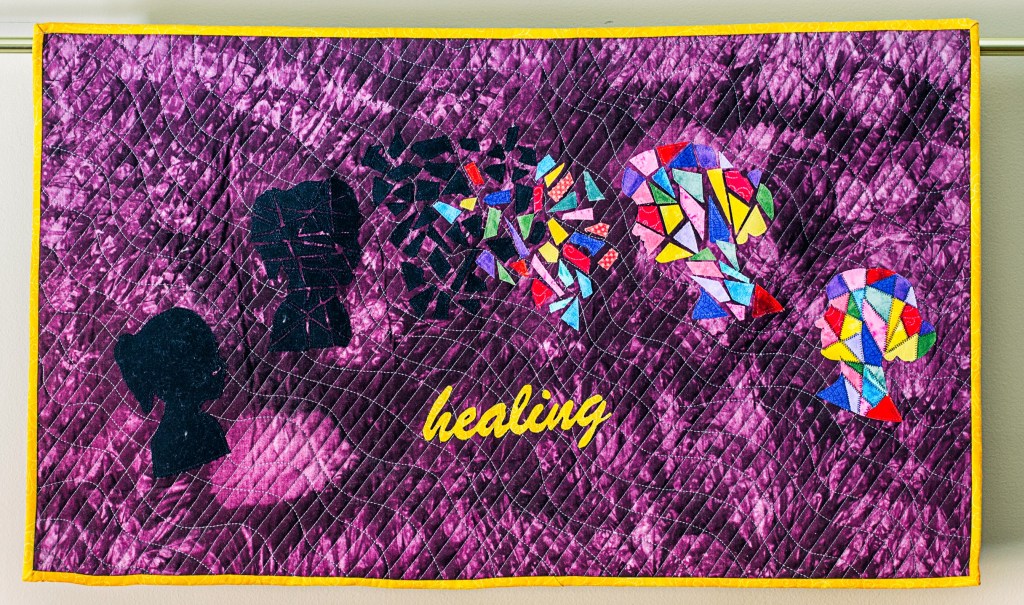Hobbies are good for you. Some people who don’t have hobbies may dismiss them as a waste of time, but anyone who collects things or makes things knows that these activities are anything but a waste of time. Aside from the pleasure they bring, they can be a source of comfort or therapy for people who are struggling with mental health issues.
I wrote an article a couple of years ago for NextAvenue.org on the mental health benefits of quilting: The Creative Art of Quilting. Readers widely shared this piece among quilters who already knew about the benefits that quilting provided.
Several years ago, I started writing a book on the long-lasting effects of abuse, and this was the introduction:
Broken Glass
Broken bones mend, skin heals, bruises fade, and broken hearts recover. Childhood is full of injuries easily gained, and just as quickly forgotten.
And yet, there is one type of pain that seems as if it could never heal: it is the pain of a broken spirit.
A child’s spirit is very tough but, it is as delicate as a piece of stained glass; a piece of glass that can be shattered beyond repair.
It then leaves behind tiny slivers that cause pain to anyone who dares touch them.
Childhood abuse is the fall that breaks the glass, it is the one thing that a parent can do that can destroy the beautiful soul, the work of art, that is their child.
©Marijke Vroomen Durning
The book stalled but I do plan on picking it up again some day. But the thoughts lingered and just after my mother died four years ago, I got an image in my head of a quilt I just had to make. I had to. The image haunted me for two weeks. When I wasn’t thinking of anything specific, the image came back to me. So I set to work putting it in fabric.
This quilt is of a girl who is broken. Then, as time passes, she starts to put the pieces together again and is once again whole. But I used black stitches on purpose because, although she is whole again, the scars are there.
When I first completed it, my husband pointed out that the background made it hard to see the girl. That was the point, I responded. That was the point.
Have you used an art or craft to help you through a tough time, to help you heal?
And if you want to know how I quilted healing, here is a short video explaining my thought process. The spring 2020 issue of Canadian Quilter published a photo of this quilt in their feature on quilts with inspirational words.
